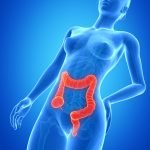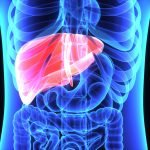Consumers May Not Understand THC Levels in Cannabis Products
Node Smith, ND
Few cannabis consumers understand what the THC numbers on packages of cannabis edibles really mean, according to a new University of Waterloo study.
Few cannabis consumers understand what the THC numbers on packages of cannabis edibles really mean
The study, which surveyed nearly 1,000 Canadians aged 16 to 30, found that most consumers could not identify whether a cannabis edible contained ‘low’ or ‘high’ levels of THC based on the label.
Researchers also found
The researchers also found that descriptive information, such as symbols and words, are more effective in helping consumers understand THC potency and approximate serving sizes for cannabis products.
“Using THC numbers to express potency of cannabis products has little or no meaning to most young Canadians,” said David Hammond of Waterloo’s School of Public Health and Health Systems. “We’ve known for many years that people struggle to understand the numbers on the back of food packages and cigarette packages. Consumers seem to have equal or even more difficulty with THC numbers, which are used to indicate the potency of cannabis products.”
Effective THC labeling and packaging could help reduce to accidental over-consumption
He added, “Effective THC labeling and packaging could help reduce to accidental over-consumption of cannabis edibles and adverse events, which have increased in jurisdictions that have legalized recreational cannabis.”
Health Canada currently requires cannabis packages to list the ingredients, product type, potency and other essential information, including weight in grams, and percentage of THC (or CBD, depending on the product), but not symbols or intuitive labeling on THC levels.
The researchers conducted two experiments with 870 Canadians aged 16-30 in 2017: The first investigated whether consumers could understand how many servings there were in a package, and the second examined if consumers could identify how potent the product was.
The study’s findings
The study found approximately 6 per cent of consumers could correctly identify serving size on products that had no label, or only listed the weight. Seventy-seven per cent could identify the serving when the dosage was listed.
The study also found that a ‘traffic light’ system, which uses traffic light colours to indicate potency, allowed two-thirds of respondents to identify products with high levels of THC, compared to 33 per cent of respondents who only used numerical THC information.
Statistics Canada found that 32 per cent of cannabis users consumed edibles
In 2018, Statistics Canada found that 32 per cent of cannabis users consumed edibles.
“New regulations that limit cannabis edibles to a maximum of 10 mg per package are particularly important given that most consumers do not understand THC numbers,” Hammond said. “However, the findings suggest that consumers will need easier-to-understand THC information for other products, including oils, concentrates and dried flower.”
1. Cesar Leos-Toro, Geoffrey T. Fong, Samantha B. Meyer, David Hammond. Cannabis labelling and consumer understanding of THC levels and serving sizes. Drug and Alcohol Dependence, 2020; 107843 DOI: 10.1016/j.drugalcdep.2020.107843

Node Smith, ND, is a naturopathic physician in Humboldt, Saskatchewan and associate editor and continuing education director for NDNR. His mission is serving relationships that support the process of transformation, and that ultimately lead to healthier people, businesses and communities. His primary therapeutic tools include counselling, homeopathy, diet and the use of cold water combined with exercise. Node considers health to be a reflection of the relationships a person or a business has with themselves, with God and with those around them. In order to cure disease and to heal, these relationships must be specifically considered. Node has worked intimately with many groups and organizations within the naturopathic profession, and helped found the non-profit, Association for Naturopathic Revitalization (ANR), which works to promote and facilitate experiential education in vitalism.









